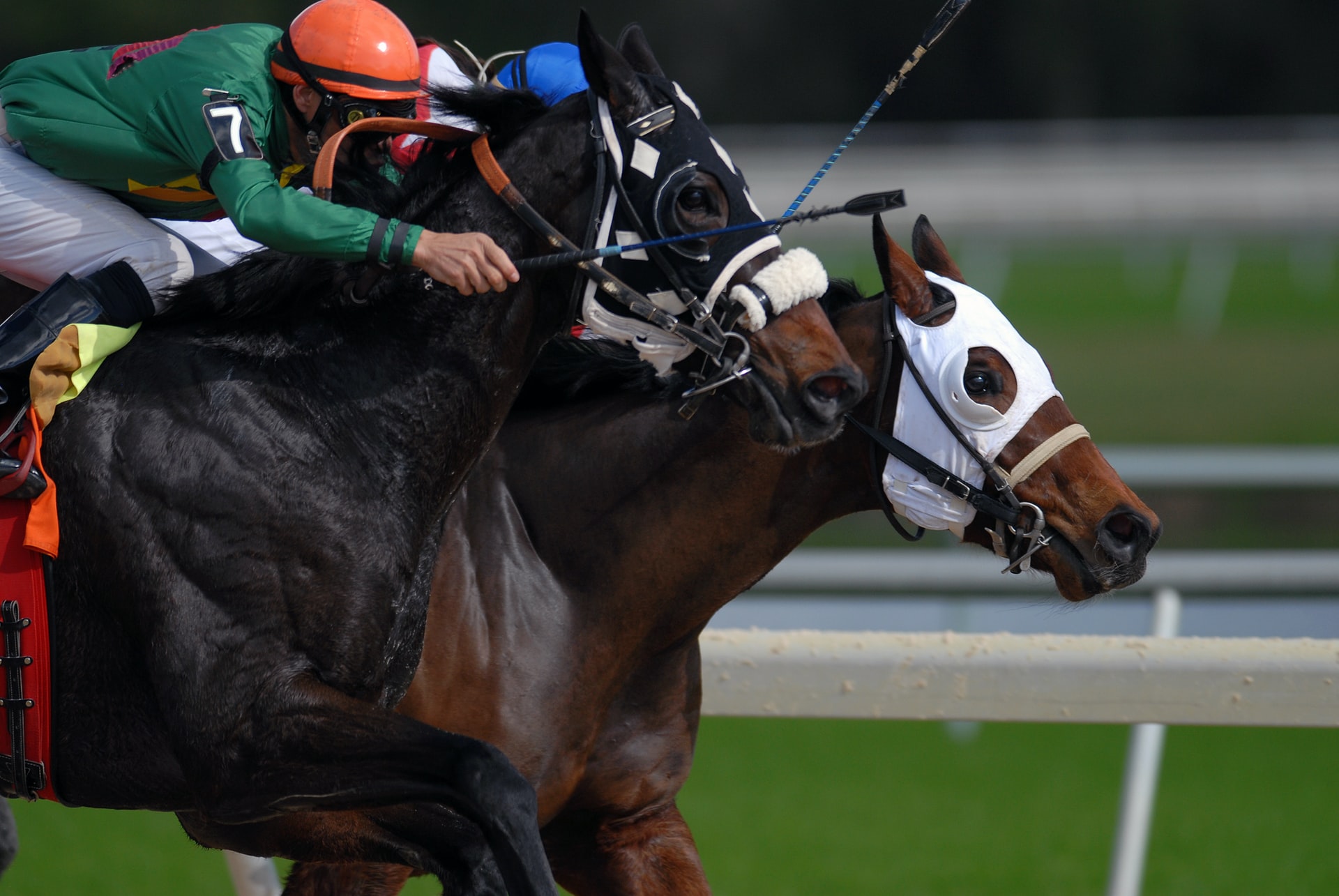A round cheeked girl comes into my box with her father. Awkwardly. They both have their hands full. He’s got a cup of coffee, a lit cigarette, and a racing form folded up and tucked under his arm. She’s carrying a soda and fries and uses her hip and elbow to flip her seat down. He looks like a regular, with his greying curly hair and dark circles under his eyes, but she is an oddity. A little kid at the racetrack is strange enough, but this one sticks out like orphan Annie with her mismatched clothing and her unruly curly hair. Her father is doing some precise calculations while looking at the form, then with exaggerated generosity, he hands to her a ticket.
“This is for you,” he says. “Don’t lose it. It means you bet of two dollars—see this dollar sign? And there’s the name of your horse. I told you I would let you bet any horse you wanted—even if it was a longshot.”
“And this one’s a big… long… shot,” she says.
“The biggest,” he says, checking the changing odds on the board.
“Peter Pan!” she says excitedly.
“Yes, it’s a great name—and he’ll never grow up,” he says absently, studying the racing form.
“He can fly,” the little girl says and tugs on his sleeve waiting for him to make eye contact, which he eventually does.
He’s gone to the trouble of backing her low-cost betting, and she’s holding the ticket to her chest. He takes a long inhale from his unfiltered cigarette, then exhales and coughs, his body heaving. The girl looks at him with unmasked concern.
Now the race is on. Her father pulls out his three tickets and grips them in his fist.
“Peter Pan!” she exclaims. “Which one is he?”
Of course, her horse is last. Peter Pan is young, inexperienced, a wildcard, and looked spooked at the paddock. Great jockey on him, though. The father’s bet on the favorite for first, second, and for show. He knows it’s a safe bet that won’t win him much, but there are better bets later in the line-up, and this keeps him in the game.
The favorite is a well-proven horse named Touch of Class, and she is half a dozen lengths ahead as the horses hit the first turn. The crowd is mildly cheering for her; they’ll save the volume for when she closes the deal. At this point most of the horses are grouped together tight, and Peter Pan is dead last. The girl is not discouraged in the least: she is already on her feet shouting his name. She’s put her food on the floor and nearly steps on it as she jumps up and down. She must think that if she yells loud enough, Peter Pan will win, so she’s pouring her heart into it. Her father regards her vacantly. At the next turn the pack has spread, and Peter Pan is in the middle of it. The girl keeps yelling, convinced the animal can hear her, and impossibly, the jockey seems to gaze up at her in the stands. At the last turn, everyone is on their feet, a roar of voices and stomping, and the little thing screams like she’s about to die in a horror movie.
To everyone’s big surprise, Peter Pan beats Touch of Class by a nose.
The girl has done it. She has a winning ticket. Her father is smiling at her. The dark circles under his eyes have faded away. He turns to her empty-handed, no cigarette, coffee, or racing form, and lifts her into his arms with the grace of a ballet dancer.
“I always knew you were a winner,” he says and kisses her on her squishy cheek, and for a moment she feels this is true.
Lael Cassidy has been a writer all her life that didn’t always believe she was. She tried her hand at academia and then rerouted into the healing arts for thirty years. Now she is rediscovering her lost love and writing somewhat feverishly in quarantine, living in Seattle with her two dogs and husband, spending a lot of time looking out at the sea.

